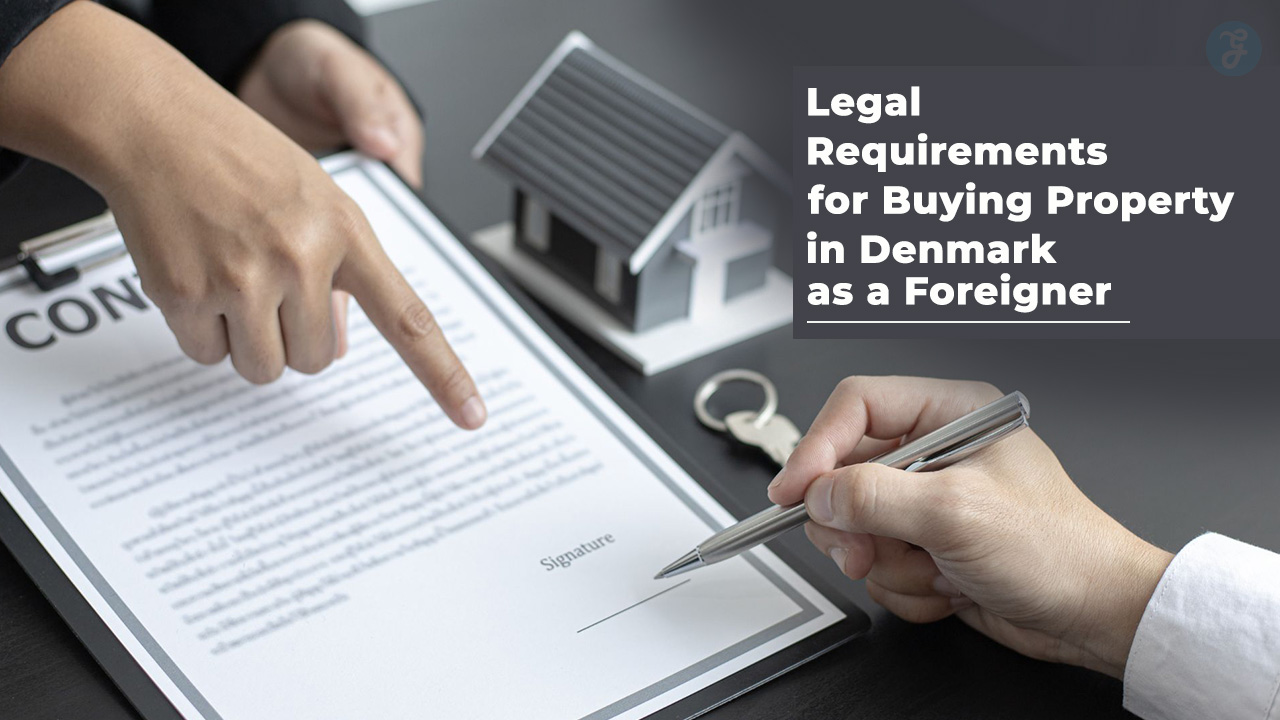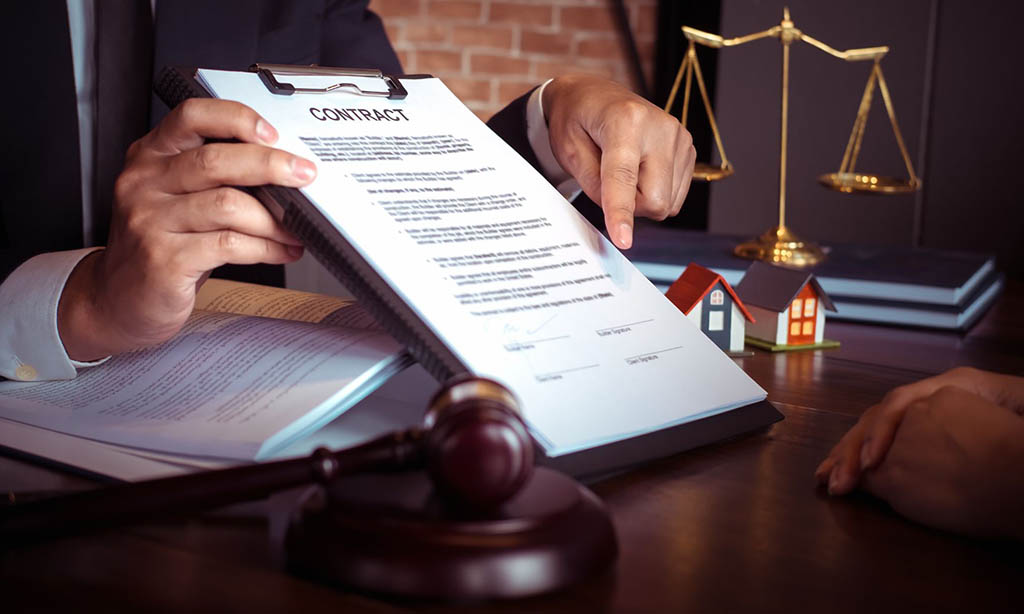Denmark’s robust economy, high standard of living, and picturesque landscapes have made it an attractive destination for international property buyers.
However, the process of purchasing property in Denmark can be complex for foreigners due to specific legal requirements that must be met.
Whether you’re interested in buying a home for personal use, an investment property, or even a vacation home, understanding these legal requirements for buying property in Denmark as a foreigner is crucial.
This comprehensive guide will explore the essential legal steps you must follow when purchasing property in Denmark.
We’ll break down the eligibility criteria, the importance of having a Danish address, financing, taxation, property types and restrictions, and much more. By the end of this article, you will have a solid understanding of how to navigate the Danish property market successfully.
1. Eligibility to Buy Property as a Foreigner
When buying property in Denmark as a foreigner, one of the first hurdles is understanding whether you are eligible to purchase property. Fortunately, Denmark has a relatively open property market. However, there are specific guidelines that differ for EU and non-EU citizens.
Who is Eligible to Purchase Property in Denmark?
In general, Denmark permits both EU and non-EU nationals to buy property, but specific conditions must be met, particularly for non-EU citizens. For EU nationals, the process is relatively simple, while non-EU nationals need to meet additional residency or connection requirements to make a purchase.
The Role of Residency and Citizenship in Property Purchases
For EU citizens, buying property in Denmark is generally straightforward. If you’re an EU resident, you can purchase property without restrictions, whether you plan to live in the property or use it for investment purposes.
However, non-EU nationals must meet stricter criteria. They are typically required to have permanent residency in Denmark, or at the very least, prove a significant connection to the country.
This could include employment, familial ties, or a demonstrated intention to live in Denmark. Without meeting these criteria, a non-EU citizen would require special permission from the Danish Ministry of Justice to purchase residential property.
| Category | Eligibility |
| EU Citizens | Can buy property freely |
| Non-EU Citizens (with permanent residence) | Eligible for property purchase |
| Non-EU Citizens (without permanent residence) | Must seek permission from Ministry of Justice |
Special Exemptions and Conditions for Non-EU Nationals
Certain exemptions apply. For example, if a non-EU national has lived in Denmark for at least five years, they may be able to bypass some restrictions. Additionally, foreign investors interested in purchasing commercial property face fewer restrictions compared to residential property.
2. Establishing a Danish Address
One of the primary requirements for buying property in Denmark as a foreigner is the establishment of a permanent address. This is essential for everything from registration to taxation and property ownership.
Importance of a Permanent Danish Address
A permanent address is necessary for registering your residence and establishing your identity with Danish authorities. It is also needed for tax reporting, banking, and mortgage purposes. If you are a foreigner, having a registered address proves that you have ties to Denmark, which is a prerequisite for legal property ownership.
How to Register an Address with the Danish Authorities
To register your address, you must apply through the Danish Civil Registration System (CPR). The CPR system tracks the residence status of all people in Denmark, including foreign nationals.
You’ll need to show proof of address (e.g., lease agreement, utility bills) and provide personal identification documents. Once you’re registered, you will receive a CPR number, which is a key requirement for tax purposes and property transactions.
| Step | Details |
| Step 1 | Register with the Danish Civil Registration System (CPR) |
| Step 2 | Provide proof of address (e.g., utility bill, lease) |
| Step 3 | Receive your CPR number for use in legal, financial, and tax matters |
How This Impacts Your Property Purchase Process
Without a registered address, the property transaction process could be delayed or even rejected. A permanent address in Denmark is required to open a bank account, obtain financing, and eventually register the property in your name. It also ensures that you meet the Danish tax obligations related to property ownership.
3. Financing Your Property Purchase
Financing is one of the more complicated aspects of buying property in Denmark as a foreigner. Danish banks are open to lending to non-residents, but the conditions may differ compared to Danish citizens.
The Role of Danish Banks in Foreign Property Purchases
Danish banks typically offer mortgage loans to foreign buyers, but the terms vary based on the buyer’s residency status. For EU citizens, the process is fairly standard, but for non-EU nationals, securing a mortgage may require a larger down payment or higher interest rates due to the perceived risk.
Understanding Mortgages for Foreign Buyers in Denmark
If you’re eligible for a mortgage, Danish banks usually offer up to 80-90% of the property’s value. The remaining portion must be covered by a down payment from the buyer. For non-EU citizens, this loan-to-value (LTV) ratio might be more restrictive, usually ranging from 60-70%, requiring a higher down payment.
Key Factors in Securing a Mortgage:
- Down Payment: Typically ranges between 5-10% for EU citizens, and higher for non-EU buyers.
- Proof of Financial Stability: You’ll need to show evidence of stable income, financial assets, and tax returns.
- Interest Rates: Expect slightly higher rates for non-residents compared to local buyers.
| Mortgage Requirements | EU Citizens | Non-EU Citizens |
| Max LTV (Loan to Value) | 80-90% | 60-70% |
| Down Payment | 5-10% | Higher than EU citizens |
| Interest Rates | Standard market rates | Higher due to perceived risk |
Down Payments and Other Financing Considerations
The larger the down payment you can make, the better your chances of securing financing. Banks typically favor buyers with a larger equity stake in the property, as it lowers their risk. Additionally, you may be required to provide additional documentation to prove your financial stability, such as pay stubs, bank statements, and tax returns.
4. Danish Taxation Laws for Property Owners
Understanding Danish tax laws is crucial to avoid any financial surprises after purchasing property. Foreign owners must comply with property tax obligations, and there are additional taxes for income generated from renting out the property.
Property Taxes for Foreign Owners in Denmark
In Denmark, property taxes are generally calculated based on the property’s value. For residential properties, the property tax rate is around 1% of the property’s assessed value. In addition, there are municipal taxes, which may vary depending on the property’s location.
Ongoing Tax Obligations: Annual Property Tax and Income Tax
Foreign property owners must also file an annual tax return, reporting their property income (if renting out the property) and other related income. Tax rates for rental income depend on the amount of income generated. Rental income is generally taxed at 28%.
Tax Benefits and Deductions for Foreign Property Owners
There are several tax benefits available to property owners in Denmark, such as:
- Mortgage Interest Deduction: You can deduct the interest paid on your mortgage from your taxable income.
- Maintenance Expenses: Expenses related to property maintenance, including repairs and upgrades, are tax-deductible.
- Energy Efficiency Incentives: There are also specific tax incentives for properties that are energy-efficient.
| Tax Category | Details |
| Property Tax | 1% of the assessed property value |
| Rental Income Tax | 28% of rental income |
| Mortgage Interest Deduction | Deductible from taxable income |
| Energy Efficiency | Tax incentives available |
5. Property Legalities and Ownership Restrictions
Foreign property buyers must be aware of certain restrictions and legalities when buying property in Denmark. While most property types are available for foreign ownership, there are exceptions.
What Types of Property Can Foreigners Buy in Denmark?
Foreigners can generally buy residential properties, apartments, and commercial properties in Denmark. However, there are some restrictions on buying agricultural land and properties in certain protected areas.
Restrictions on Purchasing Agricultural Land or Coastal Properties
Foreigners are restricted from purchasing agricultural land unless they have a connection to farming or agriculture. The Danish government seeks to maintain local ownership of agricultural resources to protect the national farming industry. Similarly, properties located in coastal zones or areas of environmental protection may require specific permits or approvals before purchase.
Understanding the Permits Required for Specific Property Types
Certain areas, particularly agricultural and coastal zones, require additional environmental permits. If you’re interested in purchasing property in a restricted area, you’ll need to submit a detailed application explaining your intentions and how you will manage the property.
| Property Type | Restriction/Permit Required |
| Agricultural Land | Must have a connection to farming |
| Coastal Properties | Environmental permits required |
| Protected Areas | Requires special permission |
6. Notary and Legal Assistance
While Denmark does not require a notary to complete property transactions, legal assistance is highly recommended to ensure that the purchase adheres to Danish laws.
The Role of Notaries in Danish Property Transactions
Danish property transactions do not involve notaries, as they are in some other countries. Instead, the contract is handled by the buyer’s lawyer and registered with the Danish Land Registry.
The Importance of Hiring a Danish Lawyer
Hiring a lawyer ensures that the transaction is legally binding and that all necessary documentation is properly handled. A lawyer will assist with contract negotiations, review the property title, and make sure there are no outstanding debts or legal issues related to the property.
| Service | Details |
| Notary | Not required in Denmark |
| Lawyer’s Role | Drafts contracts, reviews legal status of the property |
| Land Registry | Ensures official ownership transfer |
7. Understanding the Purchase Agreement
Before signing a property purchase agreement in Denmark, ensure that you understand the terms clearly. A purchase agreement binds both parties legally.
Key Elements of a Danish Property Purchase Contract
The contract should detail the price, the property’s legal description, and any terms regarding repairs or modifications before finalizing the sale.
Due Diligence: What to Check Before Signing
Before signing the contract, conduct thorough due diligence. Verify that the property has no encumbrances (such as unpaid debts), and check the ownership title for clarity. Ensure that the property is free of legal issues, such as zoning violations.
The Cooling-Off Period and What It Means for Foreign Buyers
After signing the contract, Danish law offers a cooling-off period of five days. During this period, the buyer can cancel the contract without penalty. This offers additional security to foreign buyers who may have second thoughts about the deal.
| Contract Element | Details |
| Price | Clearly stated in the agreement |
| Due Diligence | Verify legal and financial status of the property |
| Cooling-Off Period | 5 days to cancel without penalty |
8. Registration of the Property and Final Steps
Once you’ve secured financing, met all the legal requirements, and finalized the purchase agreement, the next crucial step in buying property in Denmark is the registration of the property. This process formalizes your ownership and ensures that your property rights are legally protected.
The Role of the Danish Land Registry
Denmark has a centralized Land Registration System that records all property transactions. After the purchase agreement has been signed and the payment has been made, the transfer of ownership must be registered in the Land Register (or Tinglysningsretten). This registry is an essential public record of who owns what property.
Registration of the property ensures that your ownership is legally recognized, protecting your rights to the property. The registration process also confirms that there are no claims, encumbrances, or debts attached to the property. Once the registration is complete, you will officially become the owner of the property.
Steps to Register the Property
- Sign the Purchase Agreement: This is the initial step where both parties (buyer and seller) agree on the terms of the property sale. The contract must be signed before proceeding.
- Submit Documents to the Land Registry: The buyer’s lawyer typically handles this. You’ll need to submit your signed agreement, proof of financing, and proof of identity.
- Pay the Stamp Duty: A stamp duty tax is required for property registration in Denmark, typically 0.6% of the property’s purchase price.
- Final Registration: Once everything is submitted and the stamp duty is paid, your ownership will be registered in the Danish Land Registry.
What Happens After Registration?
Once the property has been registered, you will receive official confirmation of ownership, and your rights to the property are fully recognized by Danish law. It is advisable to keep all documentation of the transaction, including the purchase agreement and registration confirmation, for future reference.
| Step | Details |
| 1. Sign Purchase Agreement | Both buyer and seller sign the property sale contract |
| 2. Submit Documents | Submit signed agreement, proof of financing, and identity |
| 3. Pay Stamp Duty | 0.6% of the property price as registration fee |
| 4. Register with Land Registry | Property ownership is officially recorded in the Land Registry |
Key Considerations After Registration
After you’ve officially registered the property, you are now the rightful owner, and you can use the property as you wish. However, there are a few ongoing responsibilities to be aware of:
- Taxation: As discussed earlier, you will be subject to property taxes, including annual property taxes and taxes on rental income if you choose to rent the property out.
- Property Maintenance: As the property owner, you are responsible for maintaining the property, including following any relevant zoning or building regulations that may apply.
- Renting Out the Property: If you intend to rent out the property, you must comply with Danish laws regarding rental income taxation and tenant rights.
Wrap Up: Navigating the Process of Buying Property in Denmark
Buying property in Denmark as a foreigner offers a unique opportunity to invest in a stable, thriving real estate market. By understanding the legal requirements for buying property in Denmark as a foreigner, you can avoid pitfalls and ensure a successful purchase.
By following the steps outlined in this guide, from understanding eligibility to navigating tax obligations and legalities, you’ll be well-equipped to make your property purchase in Denmark.
Whether you’re buying for personal use or investment purposes, Denmark remains a welcoming market for foreign property owners.





































